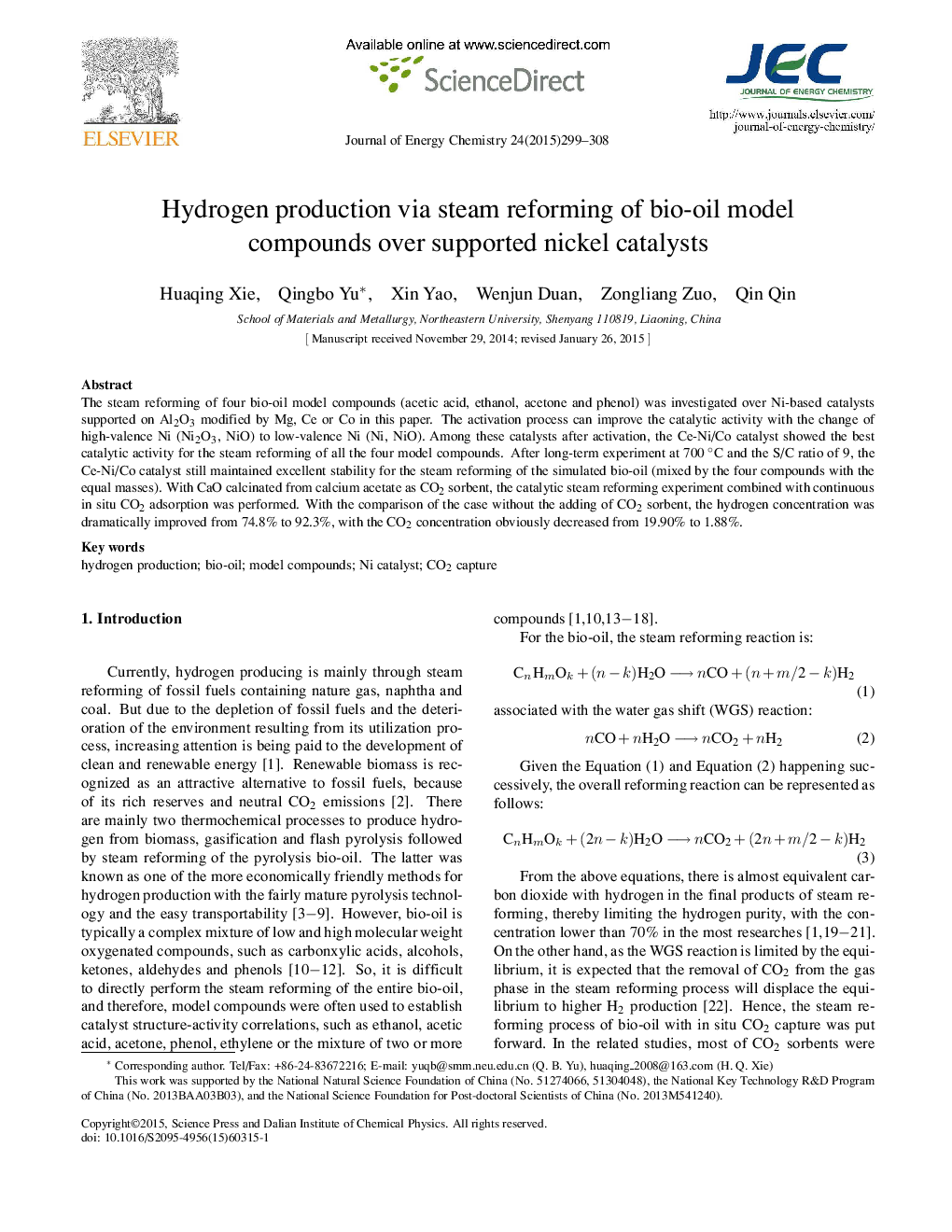| کد مقاله | کد نشریه | سال انتشار | مقاله انگلیسی | نسخه تمام متن |
|---|---|---|---|---|
| 63737 | 48250 | 2015 | 10 صفحه PDF | دانلود رایگان |
The steam reforming of four bio-oil model compounds (acetic acid, ethanol, acetone and phenol) was investigated over Ni-based catalysts supported on Al2O3 modified by Mg, Ce or Co in this paper. The activation process can improve the catalytic activity with the change of high-valence Ni (Ni2O3, NiO) to low-valence Ni (Ni, NiO). Among these catalysts after activation, the Ce-Ni/Co catalyst showed the best catalytic activity for the steam reforming of all the four model compounds. After long-term experiment at 700 °C and the S/C ratio of 9, the Ce-Ni/Co catalyst still maintained excellent stability for the steam reforming of the simulated bio-oil (mixed by the four compounds with the equal masses). With CaO calcinated from calcium acetate as CO2 sorbent, the catalytic steam reforming experiment combined with continuous in situ CO2 adsorption was performed. With the comparison of the case without the adding of CO2 sorbent, the hydrogen concentration was dramatically improved from 74.8% to 92.3%, with the CO2 concentration obviously decreased from 19.90% to 1.88%.
Large-scale catalysts is required in the novel process of bio-oil steam reforming with in situ CO2 capture for hydrogen production, and various catalysts were prepared and studied.Figure optionsDownload as PowerPoint slide
Journal: Journal of Energy Chemistry - Volume 24, Issue 3, May 2015, Pages 299–308
